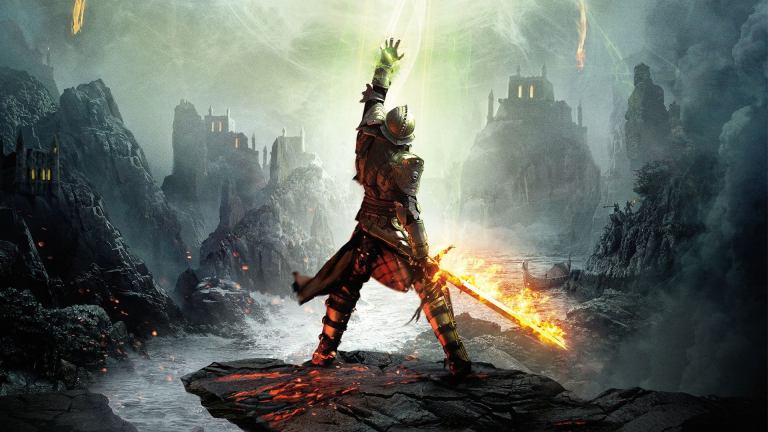Dragon Age Writer Reveals What Went Wrong With BioWare
Former BioWare writer David Gaider suggests that BioWare's treatment of its writers may have been one of the first signs of the studio's decline.

In case you haven’t heard, the Writer’s Guild of America is currently on strike over a variety of issues that include better pay and better job security. The strike most obviously impacts TV series and movies that employ WGA members, though the strike itself has everyone in the entertainment industry talking.
Most recently, David Gaider decided to weigh in on the subject of the value of writers in the current entertainment economy. For those who don’t know, Gaider is a veteran video game writer who broke into the industry by writing for BioWare. His work on titles such as Baldur’s Gate 2, Neverwinter Nights, and Knights of the Old Republic has been widely praised, though it’s Gaider’s extensive work on the Dragon Age series that often defines his legacy thus far. He is, generally speaking, often closely associated with the golden age of BioWare games.
Well, Gaider left BioWare in 2016 after a remarkable run with the company and eventually founded a new development studio called Summerfall Studios. At the time of his departure from BioWare, Gaider mentioned that he was seeking new challenges. In a Twitter thread related to the strike and how writers are consistently undervalued, Gaider expanded upon that decision by suggesting that BioWare itself eventually grew to undervalue the writers it once clearly relied on.
Later in the thread, Gaider clarified that his statements represent his personal feelings but that those feelings only grew stronger in the time leading up to his departure.
Obviously, anyone who spent so long with a company or at a job is going to have complicated feelings about their decision to eventually leave that job. The reasons behind Gaider’s decision are likely equally complex, as are the reasons for BioWare’s creative decline in recent years.
However, what Gaider is saying sadly makes a lot of sense. BioWare endured a pretty substantial talent exodus in the years around Gaider’s own departure, and some of those former employees have expressed similar concerns regarding changes within the company in the time leading up to their decisions to leave. While a popular narrative suggests that EA’s acquisition of BioWare ruined the company, that has always seemed like a simplified theory. BioWare still put out some highly-acclaimed titles following the acquisition, including the Dragon Age franchise.
What Gadier is saying, though, seems to support the idea that the company’s values and creative pursuits were altered over time as the acquisition (and other factors) perhaps put BioWare under closer fiscal scrutiny. If it was suggested that BioWare’s writers (who were a significant part of building the version of BioWare that EA paid so much money to acquire in the first place) were now being seen as an elaborate expense…well, you can imagine the numerous problems that would cause.
From a gamer’s standpoint, most people don’t need to be told that something went wrong with BioWare over the years. Elements of Mass Effect 3 (most notably, its ending) were divisive, but Mass Effect: Andromeda and Anthem were seen as outright creative failures by many longtime BioWare fans. The latter game didn’t even really feel like a BioWare title, and both games certainly lacked the writing quality that once made BioWare one of the most respected and acclaimed RPG studios in the world.
So while history may reveal that BioWare’s decline and uncertain future can be attributed to a variety of factors, it certainly seems like the gradual undervaluing of the writers and writing that once set BioWare apart may have been one of the most notable early symptoms of problems that seemingly continue to plague the studio.
